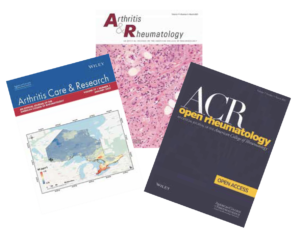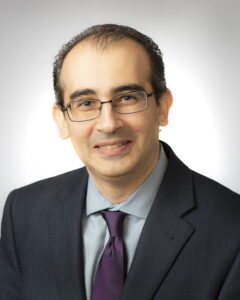 A Peer Reviewer Mentoring Program
A Peer Reviewer Mentoring Program
As an editor of scientific journals, Amr H. Sawalha, MD, Rheumatology Division director and professor of pediatrics and medicine, University of Pennsylvania Medical Center (UPMC) Children’s Hospital of Pittsburgh, noticed the pool of available expert reviewers has been shrinking over the past several years. “Other fields have been seeing the same thing, so this issue is not unique to rheumatology,” he says.

Dr. Sawalha
When Dr. Sawalha accepted the post as chair of ACR’s Committee on Journal Publications (CJP) in 2021, he was instrumental in initiating a mentoring program to address the need.
“We wanted to solve this problem [of a lack of reviewers] for rheumatology. Most know how to read a paper to extract knowledge and to apply it to clinic or a research project,” Dr. Sawalha says. “But not everyone knows how to actually review a paper critically and provide feedback [for authors]: What are the things that you need to look at, how do you read the paper for the purpose of reviewing it?”
Rheum With a (re)View, designed to train capable peer reviewers, was initiated three years ago. Applicants are now being recruited for its fourth class, with a deadline to apply of March 31.
We recently spoke with program mentees and a mentor about their experiences.
Ideas to Action
Under Dr. Sawalha’s guidance, the peer review mentoring program began to take form. The idea had been in the works prior to his term as committee chair. Rheum With a (re)View was designed to give young rheumatologists—postdoctoral fellows and junior faculty members—lessons on the mechanics of proper peer review. The editors of the ACR’s three journals—Arthritis & Rheumatology, Arthritis Care & Research and ACR Open Rheumatology—were asked to suggest mentor reviewers. A CJP subcommittee was formed to review and score applications, which included personal statements from applicants about their goals and what they hoped to learn from a structured approach to peer review.
The subcommittee initially selected 13 mentors, asking for a two-year commitment. The response from the community of mentors was overwhelmingly enthusiastic, Dr. Sawalha recalls. Each mentor was assigned two to three mentees, and many mentors stayed involved for a third year.
Each participant in the one-year program first focuses on online training modules, then meets with their mentor, who assigns papers to review based on their area of expertise and/or interest. After successfully completing three reviews, participants receive a certificate of completion.



